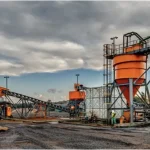The global cobalt supply chain faces fresh turbulence as the Democratic Republic of Congo (DRC) halts exports to tackle a supply glut.
Glencore has invoked force majeure on select cobalt shipments from the DRC, following the government’s surprise decision to enforce a four-month export ban on the crucial battery metal. The move, aimed at stabilizing plummeting cobalt prices, has sent ripples through the international commodities market.
The DRC, which accounts for over 70% of global cobalt production, imposed the temporary ban in February to stem oversupply and bolster revenues after cobalt prices plunged to a nine-year low. The slump was largely driven by subdued electric vehicle (EV) demand and a surge in production—particularly from Chinese-owned mining giant CMOC Group.
Glencore, the world’s second-largest cobalt producer, has since taken the rare step of declaring force majeure—a legal clause that allows companies to suspend contractual obligations due to unforeseeable events. The company declined to comment on the development when approached by Reuters.
In 2024, Glencore produced approximately 35,100 metric tons of cobalt (in concentrate and hydroxide form) from its operations in the DRC. While many of the company’s clients continue to receive shipments as per existing agreements, the full scope of disruption for affected customers remains uncertain.
Cobalt plays a critical role in modern technology, particularly in lithium-ion batteries powering EVs and smartphones. It also has strategic applications in aerospace and defense sectors in its pure metallic form.
The February ban, coupled with a separate force majeure declared by Eurasian Resources Group in March, has already started to shift market dynamics. Cobalt prices have rebounded by roughly 35%, climbing from $10 to around $15.80 per pound (or $34,832 per ton) as of mid-June.
Looking ahead, the DRC’s policy direction remains uncertain. With the current export ban set to expire on June 22, industry players are closely watching for any signs of an extension or the possible introduction of export quotas to manage future flows more tightly.
As the global demand for battery materials grows, especially amid the clean energy transition, any disruption in the DRC’s cobalt exports could have wide-reaching implications for technology manufacturers, EV producers, and geopolitical supply chains alike.















